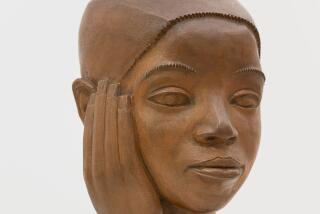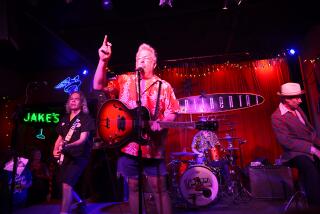SEARCHING FOR ROBERT JOHNSON by Peter Guralnick <i> (Dutton/Obelisk: $14.95; 83 pp.) </i>
Robert Johnson is among the most influential--and most mythologized--of all the early blues singers. He recorded only two sessions before his death in 1938 (at age 27) at the hands of a jealous husband. A major source of inspiration to Muddy Waters as well as a generation of rock ‘n’ rollers, Johnson is known for a wrenching singing style that is reported to have left entire audiences in tears and for his adaptation of the “walking bass” style from boogie-woogie piano.
Peter Guralnick tries to sort out the few facts that are known about the singer and to account for the myths surrounding him. Even the musicians who played with Johnson or learned from him give conflicting accounts of the man who is most often described as moody and shy. In the Mississippi Delta of the 1920s, Johnson’s uncanny style was naturally attributed to his having made a pact with the devil, a popular theme in blues lore. Through the recollections of bluesmen who knew Johnson, Guralnick brings alive the time when musicians bitten by the blues bug wandered the country, hopping trains and entertaining at rent parties or “some house-rocking get-back at some plantation.”
In distinct contrast to the oral history passages, Guralnick compares Johnson’s elusiveness to Shakespeare’s, his lyrics to Catullus’ (of all people). And in describing Johnson’s famous song, “Hellhound on My Trail,” he calls Johnson “a modern day Orpheus . . . struggling against the urge to look back.”
More to Read
The biggest entertainment stories
Get our big stories about Hollywood, film, television, music, arts, culture and more right in your inbox as soon as they publish.
You may occasionally receive promotional content from the Los Angeles Times.










